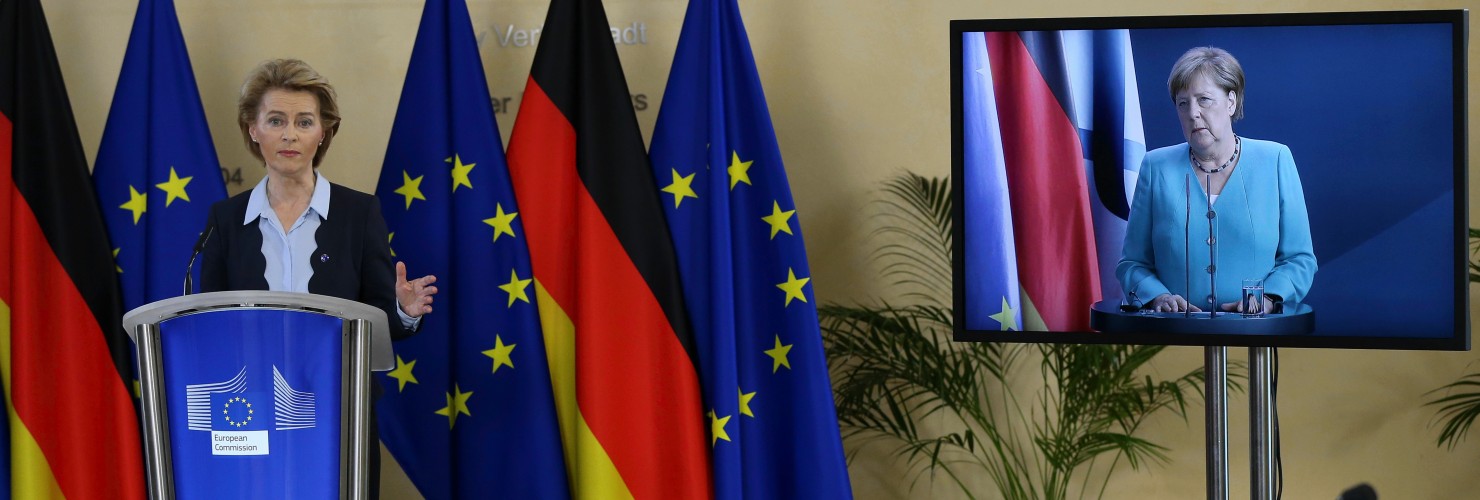

How Germany could shape Europe’s policy on China
Germany has the chance to put values into action as EU Council President. Kirstin Shi Kupfer suggests three guiding principles for EU policy towards China.
As Germany takes over the EU Council Presidency, for the first time in a long time the signs are good for a clearer, more incisive EU policy towards China. This is also urgently needed, not least because the Chinese leadership appears increasingly determined and is therefore acting and reacting increasingly harshly, both politically and economically. Never before has Europe been so united on China as it is now. Germany has the opportunity in the coming six months to develop this unity into a convincing policy.
As far as concrete measures are concerned, Brussels has already launched a number of initiatives: an investment screening mechanism, new steps in the fight against disinformation, and measures against unfair competition from state-subsidised companies from outside the EU countries in the area of public procurement. In addition, the EU wants to introduce new means for preventing Chinese companies that operate in third countries from circumventing EU tariffs.
China propaganda inflicts self-harm
Unity is becoming more important again in the EU, which means here will not be as many opportunities as there were in the past for China to divide member states. This shift is mainly the People’s Republic’s own doing. Increasingly, politicians in eastern and southern European countries, such as Poland, the Czech Republic and Greece, are expressing their disappointment with Chinese investment projects. Some European countries have also been offended by the “great benefactor” propaganda that accompanied Beijing’s deliveries of medical equipment to fight Covid-19. In many cases the equipment was neither free nor functional.
Some of the southern and eastern European countries seemingly were annoyed that French President Emmanuel Macron prioritized Berlin and Brussels in the meeting with China’s state and party leader, Xi Jinping. Politically, however, this was wise because it is only when the EU heavyweights act in unity as a first step that they create leverage with Beijing. Hopes for a consistent and consequential China policy in the second half of 2020 have also been raised by developments with Europe’s most important partner, the United States. If the elections there in November result in the global power once again being led by a president we can reckon with, it would give new strength to the dialogue between Beijing, Brussels and Washington.
Partners, competitors, and systemic rivals
As President of the EU Council Angela Merkel can and should do something about this political situation. Her task is clear: Europe needs not only a common economic line, but also a geostrategic and political line on Beijing. The People’s Republic is often described as three things: partner, competitor, and systemic rival. To do justice to this, the EU’s policy on China must also be three-pronged and Brussels should treat it accordingly. It makes strategic sense to see Beijing from these three different perspectives when dealing with global climate change, reforming the World Trade Organization, and in the conflict in the South China Sea. This requires a sober assessment, appropriately formulated, of China’s vulnerabilities and the EU’s ability to apply pressure.
China’s undermining of Hong Kong’s autonomy and its advances in the South China Sea affect Europe’s interests just as much as the lack of equal market access. However, to ensure that this triad of options for action does not degenerate into an opportunistic set of measures, a clear line must be taken – not only on programmatic principles, but above all on fundamental values. This is a characteristic that Angela Merkel brings to the job like few other politicians in Europe. She also has a high degree of credibility and is known worldwide not only for her ability to say things clearly, but also to put her words into action. European policy on China urgently needs both of these things. Concretely, we can derive three guiding principles for action from this.
1. Commitment to universal values
We should remove terms such as “Western values” and “Western systems” from the vocabulary of European China policy. Europe makes itself weaker when decision-makers - usually for the sake of significant economic interests - fall into this trap. China, like many countries, shared the harrowing experience of the Second World War and, as a result, signed the Universal Charter of Human Rights, which was and is universal.
We should be open with Chinese society about the wrong turns and setbacks that many European states have gone through in order to become more or less liberal democracies and free market economies. European policy on China with regard to Beijing should , then, raise the liberal democratic movements and market economy initiatives within recent Chinese history vis a vis the current Chinese leadership which is turning away from and neglecting those previous currents..
2. Follow words with actions
Treating China as a partner, competitor or rival, depending on the occasion, does not mean that the hard-nosed politics of self-interest is simply softened up with rhetoric about universal values. The question of equal access to the market is as much about the value of an open and transparent market as it is about the economic interests of European countries. Europe should only voice criticism of violations of legal principles or universal values – like the actions of the Chinese government in Hong Kong or Xinjiang – if it is prepared to follow through with effective action. If not, the criticism will quickly appear cheap and meaningless. A right step in this direction was the European Parliament’s announcement that it would take China to the International Court of Justice if the national security law for Hong Kong is implemented as announced.
3. Take the people with you
European policy on China is not only about states but about people - on both sides. Efforts to win over European societies to a more effective European policy must be extended to China policy. For it is the citizens who can effectively generate public pressure when, for example, companies – whether Chinese or European – break the law or violate universal values. People in Europe would understand better that a stable China policy has a price – in higher consumer prices, for example. Even more important, however, is a clear European policy towards China – starting with the Chinese people living in Europe. Despite all the usual caution about appearing self-righteous or arrogant, Europe should not only more actively promote its ability to criticize itself and to carry out fair discussion, but also demand the same from China. In other words, no more “friendship associations” or harmonizing “people-to-people diplomacy”, but interactive exchange formats with a clear commitment to pluralistic and therefore also critical debates, and multilingual online platforms in which to argue, question and debate.
Despite the caution about allowing European societies to be undermined by an authoritarian party state, European policy should neither treat all Chinese as spies nor ignore them as a weak-willed mass. Ultimately, it is always human encounters that create the connections that make understanding possible, even in times of great tension. We are going to need more of this, rather than less, in the relationship between Europe and China.
This article was originally published in German in the Manager Magazine on 24 June 2020.

